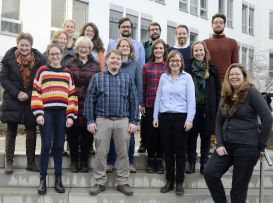Life Course, Life Course Policy and Social Integration
Our research focuses on the interplay between individual life courses and the dynamics of socio-cultural structures at different aggregation levels and in various institutional contexts.
The department closely links three strands of research: (1) Life course research investigates the dynamic interplay between social action and socio-cultural contexts in time and place, the interdependency between agency at the individual level and social institutions, and the path dependency of social processes. (2) In the study of life course policy, the complexity of social processes is taken into consideration by focusing on the impact of welfare state interventions on individual life courses and social change. (3) The research on social integration investigates how social processes are embedded in social networks, social institutions and socio-cultural values and norms, and how these processes develop and change over time.
The research in the department is primarily characterized by quantitative and qualitative longitudinal methods, aimed at identifying interdependencies that cross time, life domains and levels of analysis.
Current fields of research in the department are:
- Changes in living arrangements and family development during the life course
- Spatial mobility, the labour market and family dynamics
- Family policy
- Dynamics of social networks
- Migration processes and the integration of migrants
- Inter-ethnic social relations: children’s and teenagers’ social networks
- Life course theory and methods of life course analysis
Working Groups
The department is divided into four working groups:
- Migration and Urban Studies
led by Prof. Dr. Michael Windzio - Qualitative Methods and Microsociology
led by Prof. Dr. Betina Hollstein - Social Inequality and Social Struture Analysis
led by Prof. Dr. Wiebke Schulz - Excellence Chair
led by: Prof. Dr. Betina Hollstein











